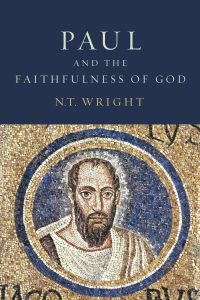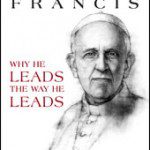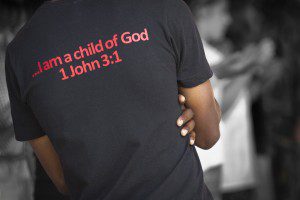 This month in the Patheos Book Club, we’re reading renowned New Testament scholar N. T. Wright’s “magnum opus,” Paul and the Faithfulness of God. Wright answered some questions for us about his passion for Paul, and the scope and hope of this epic project.
This month in the Patheos Book Club, we’re reading renowned New Testament scholar N. T. Wright’s “magnum opus,” Paul and the Faithfulness of God. Wright answered some questions for us about his passion for Paul, and the scope and hope of this epic project.
It is truly not an exaggeration to say Paul and the Faithfulness of God has been “much anticipated.” What are your hopes for this finished product?
My main hope is that the book will remake the way the next generation tackles the big questions about Paul: about the framework of his thought; about his social, cultural and historical context; about the central emphases of his work and its central foundations. This reframes all the major topics – Christology, salvation, justification and the law, eschatology and so on. In particular, I hope that this historical and theological study of Paul will give people the bigger picture (including philosophy, politics, ‘religion’ and ‘worldview’) within which not only Paul but the whole of early Christianity can be understood and freshly evaluated. Naturally, I hope that this will refresh both the church’s reading and preaching of Paul, and the perceptions of Paul in the wider world outside the church.
 The main thesis you promote has to do with Paul creating the category we can refer to in shorthand as “Christian theology.” Have you had a working definition of “theology” as you penned the Christian Origins and the Question of God studies, and do you feel like it has changed over the years?
The main thesis you promote has to do with Paul creating the category we can refer to in shorthand as “Christian theology.” Have you had a working definition of “theology” as you penned the Christian Origins and the Question of God studies, and do you feel like it has changed over the years?
For me, as for many people, ‘theology’ used to have a rather dry, abstract sound – arranging ideas in clever patterns but without much linkage to real life. With Paul all that is different. Paul was a man of action, believing that it was his God-given vocation to found and maintain communities loyal to Jesus right across a world owing allegiance to Caesar. But these communities were bound together by no social ties and indeed cut across normal social divisions. How could they be united and holy? Paul’s answer was: through prayerful, scriptural meditation on who God actually is, who God’s people are, and what God’s future is for the world. That is a kind of working definition (though I come at it in the book from several angles). These were essentially Jewish questions, but ‘theology’ in the new way Paul was doing it was something the Jewish people hadn’t needed to do – and something the non-Jewish world (for whom ‘theology’ was simply a branch of ‘physics’, the world of ‘nature’) hadn’t needed to do either. This kind of theology is a never-ending exploration – each generation has to do it afresh in its own context, and Paul gives us the tools for that rather than a set of pat ‘answers’ which mean that people don’t thereafter have to think.
What did you find most difficult to leave out of the study?
I would love to have explored more the way in which ancient philosophy, politics and religion were intertwined, but chapters 3, 4 and 5 were long enough as it was! This would have given me more chance to explore the way in which Paul’s gospel, and the communities he founded, meant what they meant within that combined world – which is very difficult for us to describe because we don’t have the right categories to do it all justice – so that I might then have tied it together more tightly in chapters 12, 13 and 14, and also in the conclusion (which remains deliberately teasing and I hope evocative) in chapter 16. I would also love to have been able to work on the economic implications of Paul’s gospel and the way that played out in relation to his communities, to the Collection for Jerusalem, and so on. Bruce Longenecker has a great book on this, Remember the Poor, but it came too late for me to factor it in to the whole construction. On other fronts, notably the major theological themes, I think I have covered most of the main bases and discussed most of the main texts.
A glance through your bio shows that you made some big life changes to work on this project. How difficult or easy were those decisions?
Those decisions were very difficult. I had not intended, expected or wanted to leave my work as Bishop of Durham, and indeed I still grieve over that. But early in 2010, with the book half written, I realized that I could not continue to work on it at the required level while giving full attention to my complex tasks as bishop, and so I accepted the offer from St. Andrews to come and work here.
Your dissertation was on Pauline Theology, especially Romans. How did this affect your work on Paul and the Faithfulness of God? How does this 1981 work relate to the present volume?
When I wrote my doctoral dissertation I didn’t realise the extent to which I was exploring quite a new way of reading Paul, or the extent to which Romans is significantly different in style and manner from the other letters. That dissertation stands in relation to the present work like an acorn to an oak. It has germinated over thirty years in the soil of much deeper study of second-temple Judaism on the one hand and of many current debates on Paul on the other. Plenty of quite new themes have come in – not least the study of Paul’s engagement with philosophy and politics – but some of the central insights remain and are I think enhanced. The heart of the dissertation was my treatment of Romans 9-11, and though I now approach that section in significantly new ways this has in fact considerably strengthened my original argument.
The book’s Part II, III and IV open with three related poems by Micheal O’Siadhail. How is the book different for these inclusions?
As I say in the Preface, Micheal gave these poems to me before they were published in his remarkable collection called Tongues. They came early enough in the writing for them to provide me with various metaphors and images which I was able to use from time to time throughout the rest of the book. I hope this, and the other poetry to which I allude, gives the whole thing a flavour significantly different to some of the more dry and technical studies on Paul – though there is plenty of technical stuff here for those who want it!
Special Patheos Book Club offers! (Now through November 30)
Get Paul and the Faithfulness of God for $59 (Retail: $89)
Use promo code: PAULFAITHFULNESS at checkout or call 800-328-4648.













